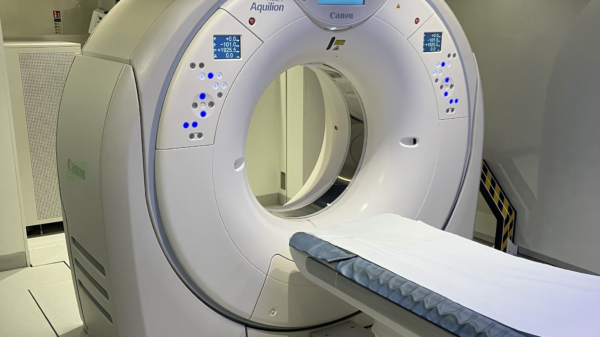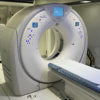The U.S. government recently raised tariffs on medical devices imported from China, a move that has sent shockwaves through global supply chains and healthcare markets worldwide.
According to a report from GlobalData released earlier this month, 13 per cent of all medical devices imported into the U.S. come from China.
This figure shows how tightly linked the U.S. medical device sector is with Chinese suppliers. The tariff hikes are part of a broader U.S. strategy to apply economic pressure amid trade tensions with Beijing. However, this policy risks damaging fragile supply chains built over many years. These networks were already tested during the COVID-19 pandemic.
Experts warn it could worsen existing shortages and push up costs in an already strained healthcare system. As a result, manufacturers, hospitals, and patients may all feel the impact.
During his presidency, Donald Trump increased tariffs on Chinese goods several times. In April, tariffs on Chinese medical imports jumped from 104 per cent to 125 per cent. Last month, tariffs on steel and aluminum rose from 25 per cent to 50 per cent. Consequently, these increases have pushed up costs for manufacturers across sectors.
Medical device makers have been forced to rethink their production and sourcing strategies. Notably, companies like Intuitive Surgical (NASDAQ: ISRG), Belluscura PLC (LON: BELL), and Johnson & Johnson (NYSE: JNJ) have revised their 2025 forecasts. Rising tariffs mean higher prices for key equipment such as surgical tools, diagnostic devices, and orthopedic products.
Financial data confirms the impact. BTIG reported that only 24 per cent of tracked medtech firms raised revenue guidance after the first quarter of 2025.
Read more: Breath Diagnostics leader speaks at lung cancer education event in Louisville
Read more: Breath Diagnostics gives the public the chance to join the fight against cancer
Global medical supply chain still recovery from COVID
Beyond manufacturers, tariffs risk increasing costs for hospitals and patients. GlobalData warns inflated device prices will strain hospital budgets. As a result, patients may face higher out-of-pocket expenses. Hospitals already deal with workforce shortages and falling reimbursement rates. Thus, rising device costs add further pressure.
The timing of these tariffs is problematic. The global medical supply chain is still recovering from pandemic disruptions. COVID-19 exposed weaknesses like overreliance on single sources for critical parts. Efforts to diversify supply and boost local production have only recently gained momentum. Yet, tariffs may slow these efforts and force tough decisions.
Companies face a choice: expensive reshoring or paying more for Chinese supplies. Both options carry risks and costs. Some firms may look to countries like India, Vietnam, or Mexico. However, building new supply lines is complex and slow.
Industry leaders are pushing back. On July 11, executives from U.S. medical device firms met on Capitol Hill. They opposed proposed Section 301 tariffs targeting many Chinese medical products. Their message is clear: tariffs will disrupt supply chains and raise healthcare costs.
Executives warn that financial burdens will fall on hospitals and patients. Many cannot absorb these extra costs. Medical devices are vital for diagnostics, surgery, and treatment. Therefore, delays or price hikes could reduce patient access or lower care quality.
The geopolitical context matters. Tariffs are part of a wider trade struggle between the U.S. and China. This fight includes technology, intellectual property, and economic competition. While tariffs can be strategic tools, using them against healthcare products is risky.
Read more: Breath Diagnostics opens Respiratory Innovation Summit with captivating presentation
Read more: Breath Diagnostics now offering a compelling investment opportunity
Experts urge balance of trade policies and healthcare needs
The medical device industry also depends on global supply chains optimized for cost and efficiency. Rapidly breaking these chains is expensive and risky. Firms may try reshoring, but it requires major investment and time. Others may diversify sourcing, but this is not easy.
Experts urge careful balancing of trade policies and healthcare needs. Disrupting supply chains risks harming patient care. The healthcare system already faces staffing shortages and inflation. Thus, the stakes go beyond business to public health.
GlobalData stresses all stakeholders must navigate these challenges wisely. Building resilient, diversified supply chains is critical. So is maintaining fair trade relations. Without smart policies, tariff hikes could hurt healthcare quality and accessibility worldwide.
joseph@mugglehead.com














